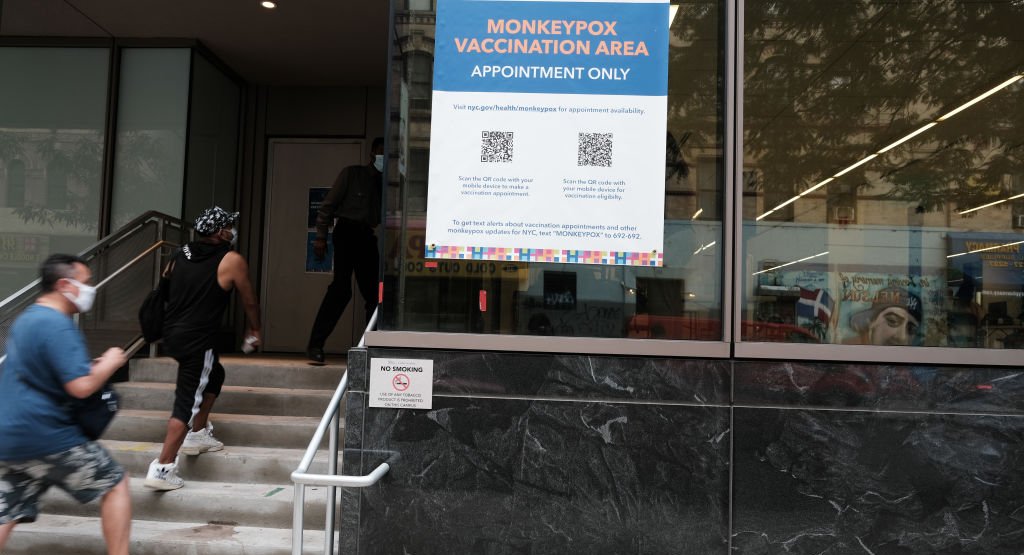New York City’s health department is warning of another increase in local cases of the mpox virus, formerly known as monkeypox, and urging medical professionals to monitor for cases ahead of the summer, when higher transmission may occur.
Health officials said in an advisory on Friday that a “substantial” uptick in reported mpox cases has occurred in the city since October, even as the overall number of cases is low compared to an outbreak in 2022. Monthly cases peaked at 51 this past January and have averaged 36 per month since the fall — up from two to 20 monthly cases earlier in 2023.
“This, along with the large outbreak of the more severe Clade I monkeypox virus (MPXV) in the Democratic Republic of the Congo, highlight the need for ongoing vigilance,” the advisory states. The virus can cause a rash that spreads across a patient’s body, along with flu-like symptoms including fever, chills, headache and muscle soreness.
Most of the recent cases were mild, though 10 people were hospitalized, according to the health department. Men who have sex with men accounted for 94% of the cases, while the majority of the cases involved Black or Hispanic people between the ages of 25 and 44. Three-quarters of the patients were unvaccinated against mpox or had only received one dose of the vaccine.
The U.S. Centers for Disease Control says there are two types of the virus: a more severe Clade I and a less severe Clade II. There have been no reported cases of Clade I in the U.S., but the recent outbreak in the Democratic Republic of the Congo poses a risk of introduction in the States via travel, the Department of Health advisory explains.
While 99.9% of people survive Clade II, some outbreaks of Clade I, which is endemic in Central Africa, have killed up to 10% of people who got sick, according to the CDC. Treatment and vaccination protocols for both types of the virus are similar.
“It is estimated that only one in four people recommended to receive the vaccine in the U.S. are fully vaccinated,” the health advisory says. “Increasing vaccine uptake is essential to preventing infections and severe disease.”
DOH officials encouraged people with potential risk of exposure to mpox to get two doses of the JYNNEOS vaccine. They also recommended that health care providers make testing for the virus easily available, follow state guidance on reviewing patients’ sexual history, and share precautions with them on preventing transmission and alleviating symptoms.
Getting You Seen Online
Thank You! Source link
